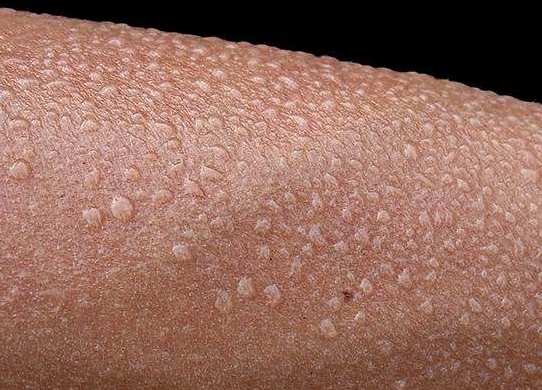
You finish a workout or a session of yard work, and a bead of sweat drips onto your lip. Out of habit, you taste the familiar, expected saltiness. But this time, the flavor is different. It’s faintly, undeniably sweet. It might be so subtle you dismiss it, or it might be pronounced enough to give you pause.
While an odd curiosity, this change is more than just a quirky sensory experience. If your sweat tastes sweet instead of salty, it could be a rare but significant health signal from your body, pointing directly to a serious metabolic condition.
The most common and medically important reason for sweet-tasting sweat is a genetic disorder called Maple Syrup Urine Disease (MSUD). The name itself comes from the distinctive, sweet odor of the sweat, urine, and earwax of affected individuals, which is often compared to maple syrup, burnt sugar, or caramel.
The “Why”: A Metabolic Traffic Jam
To understand this, think of your body’s metabolism as a complex highway system. When you eat protein, it’s broken down into amino acids, which are the building blocks for your body. Some of these amino acids need to be processed and broken down further for energy. MSUD occurs when the body lacks a specific enzyme needed to break down three particular amino acids: leucine, isoleucine, and valine.
Without this essential enzyme, these amino acids and their byproducts (called ketoacids) build up to toxic levels in the blood and tissues. It is these accumulating substances that impart the characteristic sweet smell and taste to bodily fluids like sweat. The body, in its attempt to regulate itself, expels these compounds through any means possible—including sweat.
Crucial Context: It’s Usually Diagnosed in Infancy
It is vital to understand that the classic, severe form of MSUD is almost always diagnosed in newborns through routine screening. For parents, noticing a sweet, maple syrup-like smell in their baby’s sweat or urine is a medical emergency that requires immediate attention.
However, for adults, the relevance of sweet-tasting sweat lies in what are called “late-onset” or “intermittent” forms of the disorder. In these cases, a person may have a partial enzyme deficiency that doesn’t cause problems until later in life. The symptoms can be triggered by periods of extreme stress on the body, such as:
- A major illness or infection
- Surgery
- Periods of prolonged fasting or an extremely high-protein diet
- Intense, exhaustive physical overexertion
During these times of metabolic stress, the body breaks down its own protein, flooding the system with the very amino acids it cannot properly process, leading to a sudden onset of symptoms, including the tell-tale sweet sweat.
Other Potential Causes to Consider
While MSUD is the most specific cause, there are other, less common possibilities a doctor would explore:
- Diabetic Ketoacidosis (DKA): In severe, uncontrolled diabetes, the body, starved for glucose, begins to break down fat at a rapid rate. This produces acidic compounds called ketones, which can cause a distinct, sweet or fruity odor on the breath and sometimes in sweat. DKA is a medical emergency.
- Certain Bacterial Infections: Some rare bacterial infections, particularly those affecting the skin, can produce sweet-smelling pus or discharge.
What Your Body is Asking You to Do
Noticing a single, fleeting sweet taste in your sweat is likely not a cause for panic. But if this is a persistent or recurring change, especially if it’s accompanied by other symptoms, your body is sending a signal that demands a professional interpretation.
You should see a doctor promptly if the sweet-tasting sweat is accompanied by:
- Unexplained nausea or vomiting
- Persistent fatigue and lethargy
- Poor appetite
- Confusion or difficulty concentrating
- Changes in muscle tone (stiffness or weakness)
A doctor can perform simple blood and urine tests to check for amino acid levels and the presence of ketones, providing a clear diagnosis.
Sweet-tasting sweat is a powerful example of how our bodies communicate. It’s a signal that the intricate chemistry of metabolism has hit a roadblock. By listening to this unusual message and seeking a medical opinion, you can address a potential issue at its root, ensuring your body’s internal pathways remain clear and functioning as they should.